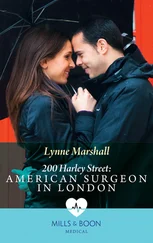The woman who first waxed my legs had much more hair on her body than the polish woman, though she also waxed often, but still the pores on her arms and legs, even her upper lip, were bigger and from them short black hairs, stubble, sprang vigorously from her oily, olive flesh. Regular shaving incites a hair follicle in its determination to thrive, so because I started the practice before I should have, the way my friends did, and I might need to wear stockings, tougher hair raised itself immediately through the pores of my sensitive skin, making my legs rough to the touch and irritants to each other. Soon rashes colored the areas around the short hairs, livid pink circles, and also some of the hairs turned inward, with small bubbles of flesh forming over them, in which the hair continued to grow and which, like a pimple, had to be squeezed, to release the fugitive hair follicle. Folliculitis is the inflammation of the hair follicle, and, as a girl, I enjoyed the outbreak of one or two. Hair is sometimes used to make art objects, woven into cloth, or braided into bracelets, and in 19th century America it was common to keep locks of hair of loved ones, dead and alive, when women also wore hair lockets that hung from a velvet ribbon about the neck. I found some hairs from my dead father's comb, but I don't remember where I put them, they were very few, not an ample, coiled lock that might have represented him, but only a sample of his DNA, predictive threads, the body's oracle.
It's easy to imagine the pain of having your underarms waxed, but I can't imagine and never want to, because it would be very much worse, being a captive, hooded and locked in a hot or cold room, since suffocation is terrible, and asthmatics must understand the experience of being hooded without wearing a hood, or people with chronic eczema, who are imprisoned in their skins, condemned to scratching their itchy flesh until it bleeds, requiring some to be strapped down and disenabled from clawing the disturbed flesh off their bodies. Photographs of hooded prisoners cause me to gag; I immediately experience a loss of oxygen and inhibition of movement in horrible empathy, which is another reason I don't read the newspaper, the way the young married man does, at breakfast, but wait until a more appropriate time, not accompanied by food, just as when I read Naked Lunch, whose characters inhabited airless hovels and sought veins into which they could inject themselves, their blood squirting onto walls or dirty sheets. William Burroughs must have been transfixed by injecting himself, by the act of fixing itself, by the blood of his own body and others, so I needed to be selective about the novel's place in my day. Burroughs loved cats and Colette, too, she was one of his favorite writers, and to her the cat was a talisman and companion, but I don't imagine Colette or Burroughs wore images of animals on their shirts or coats, though they might have been tempted to buy a souvenir of an adorable cat, as I have been but didn't, aware that it portends a slide into a vat of sentimentality. Colette was photographed with her cat and her dog, she loved cats and dogs but not her daughter, and she didn't go to her mother's funeral, though she wrote about her mother, Sido, as if she would have thrown herself onto her coffin during the funeral and buried herself, too. Burroughs was afraid to die, like my father but not my mother. Some say it's simpler to love cats or dogs than mothers, or it can be more rewarding.
My young cat came from a vacant lot in a city and may not have known his mother long or at all, but at four months old he was rescued by animal-lovers, who devote much of their lives to abandoned animals, whom human beings sometimes have kept for a time and then left on streets or in parks, because they no longer want them, the way their parents may not have wanted them, but couldn't as easily throw them out onto the cold street, and then they say, after they've abandoned the pet, I couldn't keep the dog anymore, it squealed at night, pissed on the floor, or the cat clawed my furniture, and in the dark of night, they leave helpless, domesticated creatures under a car or near a park and flee to the safety of their complacent homes. It's not surprising that my cat fears the touch of human beings, since he may have been abandoned by one, or because, early in his life, at two weeks or three, he wasn't petted by one, in addition to his mother's absence, and he spent his first four months alone, scavenging for food and warmth. When I went to the animal shelter, located in a pet store, to select the cat who might be right for me, I had in mind a gentle, smart cat, about four months old, who was alert and relaxed with people. Immediately I saw my cat, the one who would become mine that very day, and I put him on my lap, where he sat calmly, and, I decided, he likes people and he's gentle, then to test his intelligence and alertness, I carried him to a nearby fishtank, where he avidly stared at the brightly colored fish swimming back and forth in the large tank, and, I thought, he's alert, then signed the adoption papers, promising never to have him declawed and that I'd return him to this shelter rather than ever abandon him. One of the cat people or rescuers escorted us to my home, so that she could see for herself I wasn't running a laboratory that experimented on cats or didn't have many badly treated cats trapped in foul-smelling cages. Once home, my smart, gentle cat saw a litter box, which was empty of litter, and immediately pissed in it, confirming his intelligence. Three days later he could barely lift his head, and the vet diagnosed distemper, saying, he might not make it, he has a fifty-fifty chance, but he survived.
The Polish woman is hearty, her lungs thrum inside her body, her ample breasts quiver as she waxes my legs, and she has told me that she loves being outdoors, in densely shaded forests or hiking on mountains, but I don't know if it's because she fears caves and places where she might not get enough air, as I do, or if the simple pleasure of walking up a mountain or through a forest, where small animals might be hiding or larger ones, so there is always some danger and consequently excitement, though I don't imagine she's a thrillseeker, or the challenge of scaling the side of a mountain, calls to her and makes her feel vital. People want to know they are alive. Hair is dead cells or skin, like nails, there at birth, usually, though some infants arrive in the world with very little of it, and there is barely any hair on my legs now, so it takes the Polish woman no time to rip off what's grown in, like the persistent and small cluster at my outer ankles, and when I am hairless, I sometimes remember that people mourn even the loss of what was once annoying or uncontrollable to them about or on their bodies. Women mourn the loss of painful menstruations, which made their bodies ache, imprisoned them in their bedrooms, lying on their sides holding their knees to their bellies in the fetal position for days until the pain had passed, and men mourn a loss of potency, when potency led them to insert their penises into almost any orifice, vagina or rectum, available, and sometimes produced unwanted pregnancies or hemorrhoids, yeast infections in women and STDs, and other infections and diseases in men. Being waxed is almost painless now, except when I have a bikini wax in the summer, when I might wear a bathing suit, but usually don't, and then, even though there isn't much hair growing from the mons Veneris onto the inner thigh, it hurts, and the Polish woman's hands are closer to my genitals than any friend, except a lover, who may or may not be a friend, ever is, but this intimacy in the small cramped space is never remarked upon.
At dinner one night, the youngest resident, Lois, an enthusiast, who'd had several drinks, though some of us never do, she always did, her face never flushing, explained the Brazilian wax method, in which the hair at the crack of the buttocks is removed, and she'd heard about a woman in Brazil who, while she underwent this procedure, as the hair was ripped from the split between her buttocks, lay on her stomach and moaned loudly, became wet, her skin hot, then returned for the treatment frequently, experiencing arousal and climaxing each time, until the beautician refused to service her. The youngest resident who talked about the Brazilian wax method, whose reason for being here is a secret, an American born of Latin American parents, was bright with a ready laugh, and often related stories I listened to with pleasure, especially her sexual adventures, of which she had an explosive store, since, except for the tall balding man, who, I learned, was an electronic composer, who scores for computer, and, for money, worked as a programmer, and the woman with psoriasis, no one seemed to be having sex with anyone else but themselves. Nobody but the youngest female resident, Lois, I called her Spike, whose hair was long and brilliantly red, mentioned masturbation. It was, like a fart, something much adored by the person doing it in private, who was embarrassed to admit liking it, since, as a sex manual and dictionary from 1958 defines it, masturbation is "sex-abuse, the manipulation of the sexual organs until sexual satisfaction is experienced. At one time considered the cause of innumerable diseases, such as: consumption, idiocy, insanity, cancer, locomotor ataxia. Now regarded merely as a bad practice, because it is apt to become habitual, in which case it can become very injurious, whereas occasional indulgence is not. Many of the evil effects are due not to the indulgence in masturbation itself, but to the fear that it will have evil results. Also called Autoeroticism and Ipsation. In European literature this practice is wrongly referred to as Onanism," whose correct meaning, according to the manual, "is coitus interruptus and nothing else." About this difference the manual is adamant. 1958 is not long ago, it is recent history. Contesa, gentle-faced, but attentive as a cat hunting prey, its tail quivering, said once, after a swallow of red wine, "For some it's masturbate and wait, masturbate and wait." Most at the table laughed or smiled, especially j and JJ, former actors, women who have lived together for years, and like to rehearse past scenes, I'm told, naked, and also their informal male sidekick, a square-jawed Midwesterner, whose quiet, downbeat style doesn't dampen the rumor that he did something very awful once, unspeakable even, which necessitates his guilt-ridden silence. He is a lyricist, whatever else he is or was, and rarely bothers me, though his sycophancy can be cloying, but I once heard him say, "I don't feel secure right now, I'm just going to keep my eyes open, mind my Ps and Qs," so his dependency made sense and again he never bothers me. But the demanding man flinched with annoyance, his skin darkened and reddened, and all who paid attention recognized him as what a quaint Englishman once called a secret masturbator.
Читать дальше












